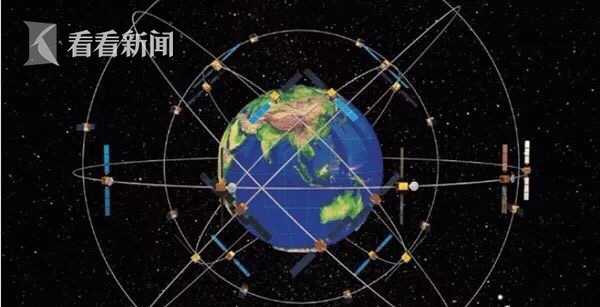
1. Geographic Information System (GIS) is the major of Geographic Information System.
2. Geographic Information System (GIS) is a comprehensive discipline. It integrates knowledge in many fields such as geography, computer science and data science to collect, store, manage, analyze and visualize geospatial data through software tools. In terms of employment, graduates majoring in GIS have a variety of career options.
3. Geographic Information System (GIS) is a comprehensive major that uses computer technology and geographical principles to collect, store, manage, analyze and display various spatial data to support decision-making in different fields.

Industry development trend: With the acceleration of the national informatization process, and the increase and development of domestic high-tech enterprises engaged in the development of geographic information system engineering, the demand for this professional talent will increase and the gap will also widen, so the employment prospects of geographic information science are good.
Graduates majoring in geographic information science can engage in scientific research, teaching, management, planning and development and management in administrative departments in scientific research institutions, schools and enterprises.
The employment directions of geographic information science include: map production and spatial analysis, geographical big data analysis, artificial intelligence and GIS. The employment prospects of geographic information science include: geographic information technology industry and geographic information science research institutions.
Digital city construction, smart city construction, drone remote sensing technology.
The employment prospects of GIS are as follows: Geographic Information System (GIS) Engineer: Graduates majoring in Earth Information Science and Technology can engage in the design, development and management of GIS systems. GIS is widely used in urban planning, environmental management, land use, transportation planning, water resources management and other fields, with large demand and more employment opportunities.
The employment prospects of geographic information science majors are relatively good. Generally, they are engaged in software development, data analysis, remote sensing mapping, engineering surveying and mapping, primary and secondary school geography teachers, civil servants or public institutions and other industries. Software development The work content of software development is to use programming languages (Java, C#, etc.) to develop software related to GIS.
1. Government departments or institutions. The employment direction of graduates majoring in geography is mainly government civil servants and career staff, such as local meteorological bureaus, surveying and mapping bureaus, water bureaus, earthquake bureaus, planning bureaus, tourism bureaus and other geography-related government departments or institutions. Middle school teacher.
2. Education direction: GeographyStudents majoring can work as geography teachers in secondary and higher education institutions, or engage in geography research and education-related work in research institutions.
3. Urban Planning and Geographic Information System (GIS): This is an important employment field for geography science majors. Urban planners and GIS professionals have a wide range of employment opportunities in urban planning, land use analysis, mapping, environmental protection and other fields.
4. The employment prospects and employment directions of geography majors are as follows: Employment prospects Government agencies: Graduates majoring in geography can be employed in government departments such as land resources, urban planning and environmental protection. They can participate in land use planning, urban planning, natural resource management and other work to provide a scientific basis for government decision-making.
5. Employment direction of geography science majors. In fact, students majoring in geography science will have many choices after graduation. The most common is geography teachers, who teach in major junior high and high schools. This is a career chosen by most students. The profession of teachers is relatively stable, and the welfare benefits are also good.
6. Zhang Xuefeng's employment prospects in geographical science are as follows: the employment direction of geographical information science majors is very broad, including land and resource management, marine development, urban planning, natural resource protection, engineering surveying and mapping, remote sensing technology, data analysis and other aspects, with a very broad prospect.
Employment Prospects for Geographic Information Science Majors are very broadGraduates can work in universities, transportation, planning, surveying and design, land, mining, water conservancy and power, communications, agriculture and forestry, urban construction, tourism and other national government departments or institutions.
Employment direction of geographic information science major: Graduates can engage in scientific research, applied research, teaching and operation management in geospatial information engineering, space data wireless network transmission, data information visualization and other fields.
The employment prospects of geographic information science are not bad. Graduates can work in cities, regions, resources, environment, transportation, population, housing and land.
Geographic information system is surveying and mapping (GIS), mainly drawing maps. The most important professional course in the undergraduate stage is C++ programming.
The objects of geographic information system processing and management are a variety of geospatial entity data and their relationships, including spatial positioning data, graphic data, remote sensing image data, attribute data, etc., which are used to analyze and process various phenomena and processes distributed in a certain geographical area to solve complex planning and decision-making. And management problems.
The main courses of geographic information system major: natural geography, human geography, economic geography, cartography, remote sensing technology, database technology, geographic information system principles, surveying, geographic information system design and application, geographic information system secondary development, program language related courses, etc.
The employment prospects of geographic information science majors are very broad. Graduates can work in universities, transportation, planning, surveying and design, land, mining, water conservancy and electricity, communications, agriculture and forestry, urban construction, tourism and other national government departments or institutions.
Relevant departments in the fields of population, housing, land, infrastructure and planning management are engaged in applied research, technology development, production management and administrative management related to geographic information systems, and can also engage in scientific research or teaching in scientific research institutions or institutions of higher learning.
First of all, graduates majoring in geographic information science can work in government departments, such as urban planning, environmental protection, traffic management and other departments. They can take advantage of geography.Information system (GIS) technology provides data analysis and decision-making support to provide a scientific decision-making basis for the government.
Binance login-APP, download it now, new users will receive a novice gift pack.
1. Geographic Information System (GIS) is the major of Geographic Information System.
2. Geographic Information System (GIS) is a comprehensive discipline. It integrates knowledge in many fields such as geography, computer science and data science to collect, store, manage, analyze and visualize geospatial data through software tools. In terms of employment, graduates majoring in GIS have a variety of career options.
3. Geographic Information System (GIS) is a comprehensive major that uses computer technology and geographical principles to collect, store, manage, analyze and display various spatial data to support decision-making in different fields.

Industry development trend: With the acceleration of the national informatization process, and the increase and development of domestic high-tech enterprises engaged in the development of geographic information system engineering, the demand for this professional talent will increase and the gap will also widen, so the employment prospects of geographic information science are good.
Graduates majoring in geographic information science can engage in scientific research, teaching, management, planning and development and management in administrative departments in scientific research institutions, schools and enterprises.
The employment directions of geographic information science include: map production and spatial analysis, geographical big data analysis, artificial intelligence and GIS. The employment prospects of geographic information science include: geographic information technology industry and geographic information science research institutions.
Digital city construction, smart city construction, drone remote sensing technology.
The employment prospects of GIS are as follows: Geographic Information System (GIS) Engineer: Graduates majoring in Earth Information Science and Technology can engage in the design, development and management of GIS systems. GIS is widely used in urban planning, environmental management, land use, transportation planning, water resources management and other fields, with large demand and more employment opportunities.
The employment prospects of geographic information science majors are relatively good. Generally, they are engaged in software development, data analysis, remote sensing mapping, engineering surveying and mapping, primary and secondary school geography teachers, civil servants or public institutions and other industries. Software development The work content of software development is to use programming languages (Java, C#, etc.) to develop software related to GIS.
1. Government departments or institutions. The employment direction of graduates majoring in geography is mainly government civil servants and career staff, such as local meteorological bureaus, surveying and mapping bureaus, water bureaus, earthquake bureaus, planning bureaus, tourism bureaus and other geography-related government departments or institutions. Middle school teacher.
2. Education direction: GeographyStudents majoring can work as geography teachers in secondary and higher education institutions, or engage in geography research and education-related work in research institutions.
3. Urban Planning and Geographic Information System (GIS): This is an important employment field for geography science majors. Urban planners and GIS professionals have a wide range of employment opportunities in urban planning, land use analysis, mapping, environmental protection and other fields.
4. The employment prospects and employment directions of geography majors are as follows: Employment prospects Government agencies: Graduates majoring in geography can be employed in government departments such as land resources, urban planning and environmental protection. They can participate in land use planning, urban planning, natural resource management and other work to provide a scientific basis for government decision-making.
5. Employment direction of geography science majors. In fact, students majoring in geography science will have many choices after graduation. The most common is geography teachers, who teach in major junior high and high schools. This is a career chosen by most students. The profession of teachers is relatively stable, and the welfare benefits are also good.
6. Zhang Xuefeng's employment prospects in geographical science are as follows: the employment direction of geographical information science majors is very broad, including land and resource management, marine development, urban planning, natural resource protection, engineering surveying and mapping, remote sensing technology, data analysis and other aspects, with a very broad prospect.
Employment Prospects for Geographic Information Science Majors are very broadGraduates can work in universities, transportation, planning, surveying and design, land, mining, water conservancy and power, communications, agriculture and forestry, urban construction, tourism and other national government departments or institutions.
Employment direction of geographic information science major: Graduates can engage in scientific research, applied research, teaching and operation management in geospatial information engineering, space data wireless network transmission, data information visualization and other fields.
The employment prospects of geographic information science are not bad. Graduates can work in cities, regions, resources, environment, transportation, population, housing and land.
Geographic information system is surveying and mapping (GIS), mainly drawing maps. The most important professional course in the undergraduate stage is C++ programming.
The objects of geographic information system processing and management are a variety of geospatial entity data and their relationships, including spatial positioning data, graphic data, remote sensing image data, attribute data, etc., which are used to analyze and process various phenomena and processes distributed in a certain geographical area to solve complex planning and decision-making. And management problems.
The main courses of geographic information system major: natural geography, human geography, economic geography, cartography, remote sensing technology, database technology, geographic information system principles, surveying, geographic information system design and application, geographic information system secondary development, program language related courses, etc.
The employment prospects of geographic information science majors are very broad. Graduates can work in universities, transportation, planning, surveying and design, land, mining, water conservancy and electricity, communications, agriculture and forestry, urban construction, tourism and other national government departments or institutions.
Relevant departments in the fields of population, housing, land, infrastructure and planning management are engaged in applied research, technology development, production management and administrative management related to geographic information systems, and can also engage in scientific research or teaching in scientific research institutions or institutions of higher learning.
First of all, graduates majoring in geographic information science can work in government departments, such as urban planning, environmental protection, traffic management and other departments. They can take advantage of geography.Information system (GIS) technology provides data analysis and decision-making support to provide a scientific decision-making basis for the government.
 OKX review
OKX review
294.79MB
Check OKX Wallet app
OKX Wallet app
875.66MB
Check Binance Download for PC Windows 10
Binance Download for PC Windows 10
453.85MB
Check Binance US
Binance US
482.94MB
Check Binance wikipedia
Binance wikipedia
835.45MB
Check Binance APK
Binance APK
176.65MB
Check Binance app download Play Store
Binance app download Play Store
775.44MB
Check OKX Wallet apk download latest version
OKX Wallet apk download latest version
272.59MB
Check Binance app
Binance app
149.22MB
Check OKX Wallet
OKX Wallet
356.68MB
Check Binance login
Binance login
733.15MB
Check okx.com login
okx.com login
595.76MB
Check Binance US
Binance US
158.85MB
Check Binance login App
Binance login App
571.81MB
Check Binance login
Binance login
349.79MB
Check okx.com login
okx.com login
721.19MB
Check Binance login
Binance login
558.12MB
Check OKX Wallet
OKX Wallet
336.41MB
Check okx.com login
okx.com login
754.86MB
Check Binance login
Binance login
229.41MB
Check Binance market
Binance market
745.72MB
Check OKX Wallet apk download
OKX Wallet apk download
179.27MB
Check Binance app
Binance app
155.33MB
Check Binance US
Binance US
836.94MB
Check Binance APK
Binance APK
928.89MB
Check OKX Wallet apk download
OKX Wallet apk download
438.22MB
Check Binance US
Binance US
572.58MB
Check Binance login
Binance login
469.84MB
Check Binance download iOS
Binance download iOS
769.68MB
Check OKX Wallet APK
OKX Wallet APK
538.84MB
Check Binance download
Binance download
524.89MB
Check Okx app download
Okx app download
546.46MB
Check Binance download Android
Binance download Android
848.28MB
Check Binance wikipedia
Binance wikipedia
544.38MB
Check OKX Wallet Sign up
OKX Wallet Sign up
732.83MB
Check Binance app
Binance app
871.98MB
Check
Scan to install
Binance login to discover more
Netizen comments More
2926 侯门如海网
2025-01-10 18:07 recommend
1864 冠袍带履网
2025-01-10 17:44 recommend
2279 不骄不躁网
2025-01-10 17:28 recommend
512 兴致索然网
2025-01-10 16:40 recommend
76 白龙鱼服网
2025-01-10 16:36 recommend